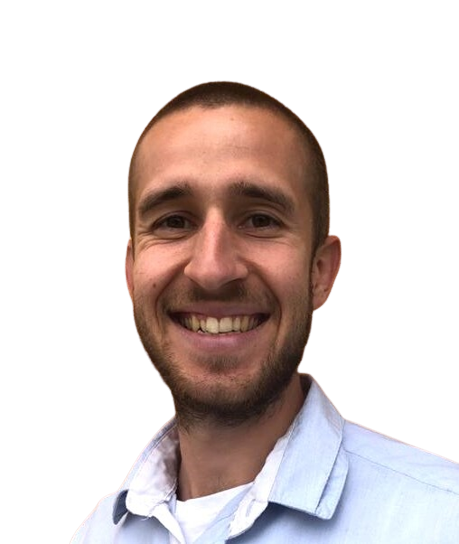Julius Rosenhan, part of our early childhood development team in Zanzibar, shares reflections on working with children with disabilities in Zanzibar.
Recently I joined Aisha, a community health volunteer in Zanzibar, during one of her routine visits to a family. This time she saw Ali, a curious 5-year-old child. Normally during the visits Aisha checks the developmental progress of a child and advises the mother about nutrition, early learning opportunities, safety and security, and responsive caregiving. But this visit was specifically to check on Ali and talk to his caregivers about the disabilities he is living with.
Children with disabilities are among the most marginalized groups in Zanzibar. They are facing significant barriers to getting the health care they need and deserve. Misconceptions and stigma as well as a lack of specialized health services and staff trap children with disabilities and their caregivers in Zanzibar between living in marginalizing communities and dealing with an under-resourced and complicated healthcare systems and processes. To address this issue, community health volunteers can play a crucial role by bridging national health systems and communities through delivering frontline and first-contact services.
Aisha is part of D-tree’s flagship program, Jamii ni Afya, and her role is to visit pregnant mothers, children, and caregivers to provide basic health services at their doorstep. After receiving training on how to better provide support and services to children with disabilities and their caregivers, Aisha is using her new knowledge and skills when visiting Ali and his family. During the visit, Aisha noticed that his parents showed great support towards him but they did not fully understand his disability and lacked skills on how to foster his development appropriately. Additionally, less resources and attention were channeled towards supporting and interacting with Ali. His parents also raised how challenges exist for Ali to receive the appropriate health care services at the facility level or to gain access to the education system.
Following implementation research, shedding light on the gap of community health volunteers not being able to support children with disabilities and their caregivers appropriately, D-tree started to strengthen the approach for Jamii ni Afya community health volunteers to provide targeted and tailored support to children with disabilities and their caregivers, acting on its goal to improve maternal and child health in Zanzibar and contribute to Universal Health Coverage and Health Equity.
We see three ways in which community health volunteers can support children with disabilities and their caregivers in Zanzibar:
- Community health volunteers are trusted by the communities they serve and can track developmental milestones and identify risk signs as well as disability early. This close interaction and engagement allows them to build a good rapport with the family and child, which puts them in a good position to recognize risk signs for disability.
- By being better prepared to identify a disability early, community health volunteers can refer a child with risk signs for developing a disability or signs of disability to the nearest health facility for further assessment and support by a health professional. Early identification helps with preventing the development of severe cases but also opens curative and rehabilitative pathways and may overall foster a positive impact on improving the quality of the child’s life.
- Community health volunteers can build an understanding of disabilities as well as change negative perceptions of caregivers and families towards children with disabilities. They can break with stigma and misconceptions hindering the development of children by providing messages and support on nurturing care.
There are also limitations and challenges when using community health workers to support children with disabilities and their caregivers. Community health volunteer programs are only as strong as the public health system itself. Disability-inclusive services at health facilities, support for parents, specialized staff, and diagnostic, treatment, and rehabilitative healthcare services within the public health systems are essential.
Community health volunteer programs are only as strong as the public health system itself.
Community health volunteers need to be professionalized, meaning they need to be properly trained, supervised, and compensated when taking up additional tasks and responsibilities. They can support children with disabilities and their caregivers best when being an integral part of the national health system as it ensures their status and role as well as building on information-sharing-, referral-, and continuum of care linkages. Unfortunately, little research and evidence exist focusing on how community health worker programs can target children with disabilities and their caregivers with targeted and tailored services.
Ali has the right to receive the nurturing care and necessary health services appropriate to ensure he can develop to the best of his abilities.
So what now? Thinking and acting more on how to leverage the potential of community health volunteers to drive health equity for children with disabilities becomes crucial when aiming to achieve Universal Health Coverage. Ali has the right to receive the nurturing care and necessary health services appropriate to ensure he can develop to the best of his abilities. With the necessary support in terms of training, supervision, and compensation as well as integration into the health system, Aisha as a community health volunteer is in a good position to support Ali and his family. With further attention given to finding ways on how community health workers can support children with disabilities and their caregivers, health inequities of children with disabilities can be reduced.

